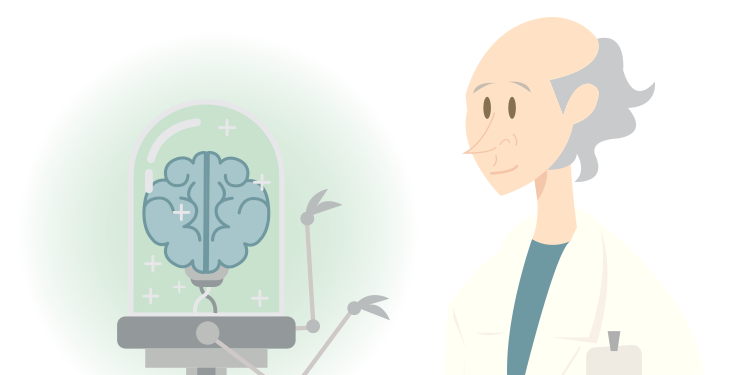It should come as no surprise that the spaces we occupy every day have a huge impact on our overall wellness. The Environmental Protection Agency and Vancouver Coastal Health report that Americans and Canadians spend about 90% of their time indoors. But what about the time we spend outdoors?
Your Welcoa membership has expired.
Surprise Guest Announcement: World’s Leading Brain Expert to Keynote Summit
The brightest mind in brain health, Dr. Daniel Amen, a man the Washington Post deemed “the most popular psychiatrist in America,” is making a special appearance to deliver a keynote at the upcoming WELCOA Summit. His world renowned research has been featured in Newsweek, Time, Huffington Post, ABC World News, 20/20, BBC, London Telegraph, Parade Magazine, New York Times, New York Times Magazine, Washington Post, LA Times, Men’s Health and Cosmopolitan. His popular Amen Clinics not only have over 4,000 patient visits a month, they also boast the world’s largest database of functional brain scans relating to behavior.
Last year, WELCOA President Ryan Picarella sat down with Dr. Amen to find out more about how we can elevate our performance in work and life through brain health. Here is an excerpt from that interview.
Ryan Picarella:
Dr. Amen, what set you on the path to discovering more about how the brain works? What sparked your interest to grow into the authority you are today?
Dr. Amen:
I grew up in Southern California where my father owned a chain of grocery stores and later became the Chairman of the Board of Unified Grocers, one of the largest grocery wholesalers in the Western United States and a 4-billion-dollar company. I have been around business my whole life.
After I became interested in the brain during medical school, I became very curious how its moment-by-moment function could affect business. I remembered that one of my father’s grocery managers was having an inappropriate affair with a checker; another supervisor had an explosive temper, and other employees could never be on time. While most people judge these workers as bad, I wanted to understand why they were the way they were, and if we could help them make better decisions.
When I started looking at people like them through the lens of our brain imaging work, I thought, I wonder if they might have had a brain injury. Could this person have untreated ADD? Could that person be bipolar? I came to realize that the brain obviously is involved in everything you do and every decision you make in your personal life, but I became particularly interested in how brain health applies to work as I watched my dad as an owner/manager/supervisor and the issues he had to deal with and realized that many could be brain issues disrupting the workplace that could be improved. Also at work, if I could help optimize your brain, you are better CEO, you are better manager, you are better employees, you make better decisions and ultimately your business is better and more profitable, and your employees are healthier, likely to do better work and stay with you longer.
“…if I could help optimize your brain, you are better CEO, you are better manager, you are better employees, you make better decisions and ultimately your business is better and more profitable, and your employees are healthier, likely to do better work and stay with you longer.”
Ryan Picarella:
What impact does brain health have on our physical health? Can you put one before the other?
Dr. Amen:
In my book Change Your Brain, Change Your Body I make the argument that the three pounds of fat between your ears, in large part, determines your physical health. Your physical health is most likely a sum of all of the decisions you’ve made in your life, including how much you sleep, what you eat, and how much you weigh. Your health habits are a series of decisions your brain makes everyday, and when your brain works right you work right. When your brain is troubled, for whatever reason, people are sadder, sicker and poorer because their decisions are not good. They are less successful in everything they do. In all of the success books that I’ve ever read, very few people ever talk about the physical health of your brain. But in my mind that is the foundation of success in relationships, at work, with yourself, because it is all about the decisions your brain makes.
“With two thirds of us overweight in this country, nearly 40 percent of us now obese, we have to attack from our health problems from a brain health perspective to be truly effective.”
Think about walking through a grocery store. There are so many opportunities to make bad decisions, and a lot of things they’re trying to sell you will kill you early. So your brain has to constantly say, “No thank you.” But if it is unable to do that because you had a brain injury, because you did not get good sleep, because you do not know how to say no, you end up making those bad decisions that lead to things like diabetes, obesity, hypertension and heart disease. People see them as illnesses that happen to them rather than as consequences of the decisions their brains make every day. With two thirds of us overweight in this country, nearly 40 percent of us now obese, we have to attack from our health problems from a brain health perspective to be truly effective.
Want to Learn More?
Read the full interview here. We invite you to come see Dr. Amen deliver an innovative keynote at the 2017 WELCOA Summit on August 29th in Omaha, Nebraska. Registrations are still available, but are selling out quickly.




